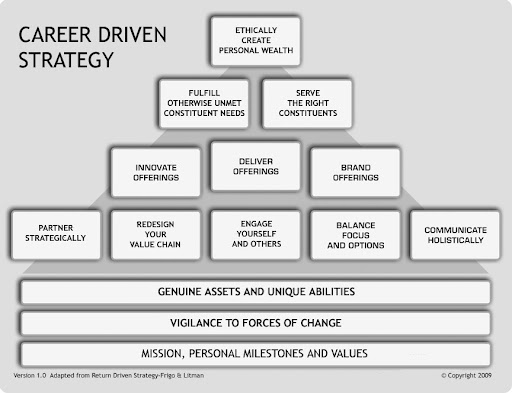Is AI now taking over the workforce?
| From the desk of Miles Everson: Hello! How’s your midweek so far? I hope you’re all well. I’m excited to share another investing insight for today’s “The Independent Investor.” Every Wednesday, I publish thought pieces that are truly helpful for us in making wise decisions in terms of finance and investing. Ready for today’s topic? Continue reading below! |
Is AI now taking over the workforce? There’s a quiet shift happening right under everyone’s nose… In boardrooms and business plans, balance sheets and brainstorming sessions, decisions are being made that will forever redefine who (or what) shows up to work. The question isn’t if a seismic shift is coming; it’s whether investors are prepared to recognize the companies driving the disruption and profit from them. At the heart of this shift is a force accelerating faster than most market participants can process. According to Professor Joel Litman , Chairman and CEO of Valens Research and Chief Investment Officer of Altimetry Financial Research, this force isn’t just changing how companies operate; it’s quietly reshaping how they generate profits, hire talent, and deliver shareholder value. Yet, in classic market fashion, most investors still haven’t connected the dots.
The CEO Who Reconsidered the Power of Artificial Intelligence (AI) One of the most telling stories comes from Sebastian Siemiatkowski, CEO of Swedish fintech giant Klarna. A year ago, Siemiatkowski was one of AI’s most vocal proponents. He praised the technology’s ability to slash costs, reduce errors, and boost customer satisfaction. So transformative was the technology that Klarna halted new hiring altogether—after all, AI could already do the work of hundreds of human employees. Fast forward to today, and that same CEO is worried the machines might come for his job next. His change of heart is a potent symbol of what Professor Litman describes as the “corporate inflection point”—where the line between cost-saving innovation and existential displacement becomes razor-thin. However, while CEOs like Siemiatkowski wrestle with the ethics and implications, investors have a clearer mission: Identify which companies are using AI to lead, not lag . To Professor Litman, there’s one company that’s not just surviving this transformation but also thriving because of it: Microsoft.
While many recognize Microsoft as a major investor in OpenAI —the creators of ChatGPT—Professor Litman emphasizes that the real story isn’t about splashy partnerships but about operational transformation. Microsoft’s AI assistant Copilot, its Azure AI suite, and deep integration into business software are innovations and internal productivity engines. According to Professor Litman, what’s truly remarkable isn’t just that Microsoft builds these tools… it’s that the company uses them so effectively that it no longer needs to hire at previous rates. Still, the company is projecting USD 33 billion in additional revenue this year alone! Professor Litman notes this is a rare case where a company both sells the picks and shovels, and finds gold with them. However, despite Microsoft’s aggressive AI positioning, the market seems unconvinced. Altimetry ’s Embedded Expectations Analysis (EEA)—a tool that decodes what the market thinks a company will achieve based on its stock price—tells a different story. Using the EEA framework, Professor Litman reveals Microsoft has averaged a Uniform return on assets (ROA) of 34% over the past five years. Meanwhile, the market is pricing the stock as if that ROA will decline to 29% by 2029.
To Professor Litman, this is a classic mispricing. The market is underestimating just how much Microsoft is improving efficiency, cutting costs, and enabling AI adoption at scale. Basically, it’s not a bet on hope but a bet on already proven operational leverage. AI: No Longer a Buzzword but a Bottom Line Weapon In Professor Litman’s view, companies like Microsoft are showing how AI can replace the need for traditional human capital expansion. Klarna, as mentioned, saw its AI assistant handle the workload of 700 full-time customer service reps. Microsoft, on the other hand, has been growing its revenue without increasing its headcount. This “do more with less” dynamic is what Professor Litman believes will separate winners from losers in the next five years of market performance. He states AI isn’t just changing the workplace; it’s changing what “operating leverage” even means. That’s why investors who rely on traditional valuation models could miss the biggest wealth creation event of this decade. So, where do investors go from here? For forward-looking investors, Professor Litman’s message is clear: Don’t wait for the market to catch up . By the time Wall Street analysts revise their models to reflect AI’s impact, the outsized returns will have already been captured by those who saw the shift early. Meanwhile, companies that enable and apply AI internally—like Microsoft—are not only leading the revolution but also monetizing it from both sides of the battlefield. … and while some executives like Siemiatkowski worry about being replaced by their own creations, the savvy investor knows the real risk is not backing the innovators in time. Hope you’ve found this week’s insights interesting and helpful. Stay tuned for next Wednesday’s The Independent Investor! Not even blockbuster sports deals can beat the constant churn of the stock market. Find out why in next week’s article! |

Miles Everson
CEO of MBO Partners and former Global Advisory and Consulting CEO at PwC, Everson has worked with many of the world's largest and most prominent organizations, specializing in executive management. He helps companies balance growth, reduce risk, maximize return, and excel in strategic business priorities.
He is a sought-after public speaker and contributor and has been a case study for success from Harvard Business School.
Everson is a Certified Public Accountant, a member of the American Institute of Certified Public Accountants and Minnesota Society of Certified Public Accountants. He graduated from St. Cloud State University with a B.S. in Accounting.






